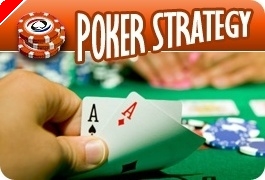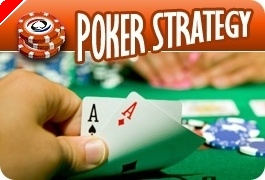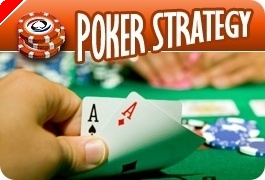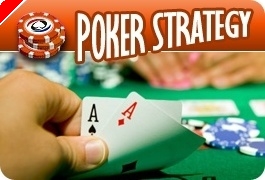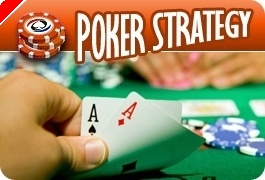Fun Home Poker Game Rules - 6 Triple Common

The hold 'em phenomenon has swept through all aspects of our poker lives. We see it on TV. We play it in charity tournaments. We see it in bookstores. It has so become a part of our lives that I find that even the home games I call often include some elements of it – even in the non-hold 'em games.
In the interest of preserving at least some interest in stud, my favorite game, I have been playing a blend of the two games – something that mixes the common cards of hold 'em with the individual hands of stud. Here's the most common version of that game.
It's "6 triple common". It is played much like 6-card stud, but with the addition of some common cards – and with a slight twist that deviously works against the pure hold 'em player as I'll explain at the end. Let me first explain the game more completely.
Each player is dealt a down card and an upcard – as they would be in six card stud. At the same time as they receive their upcard, a common upcard is placed in the middle of the board. There is a round of betting.
Each player then receives another upcard – as they would in six card stud. Another common card is placed face up in the middle. This too is followed by a betting round.
Each player then receives a third upcard – as they would in six card stud. A third upcard is placed face up in the middle. There is a betting round.
Each player then receives a fourth upcard. No additional upcards are placed in the middle. A fourth betting round ensues. And then a final down card is dealt to each player, followed by a betting round and a showdown. We usually play the game hi-lo, with the high hand and the low hand splitting the pot. Typically we play with an 8 qualifier for low – meaning that you have to have at least an 8 low to qualify for winning the low. If there is no player with at least an 8 low then the entire pot is won by the best high hand.
Players may use any one of the upcards to make their hands. They may use the same upcard for a high hand and a low hand or they may use different cards to make them. The key is that they may only use one of the three cards. Unlike hold 'em, they may not use two of them or three of them in their hands – just one.
Here's a showdown with five hands and a final board so you can see exactly how this would play out in 6 triple common – played hilo 8 or better.
JIM (6♦) K♠7♦ A♠9♥ (5♣)
MING (J♣) 7♥7♠ 2♥2♣ (9♦)
JELLA (6♥) 8♠4♠ Q♣K♦ (K♣)
ASHLEY (10♣) J♦ 7♣ J♥10♥ (5♥)
RICHARD (8♦) A♥A♦ 10♠4♣ (5♠)
BOARD: K♥ 10♦ 2♠
The complete hands would be as follows:
JIM would have a qualifying low hand by using the 2 from the board. It would be 7652A. His best high hand would be a pair of Kings.
MING would not have a qualifying low hand. His high hand would be a full house, using the 2s from the board and the two 2s and two 7s in his hand for 22277.
JELLA would not have a qualifying low hand. He would have three Kings for high, using the Kh from the board and his Kd and Kc from his hand
ASHLEY would not have a qualifying low hand. He would use the Td from the board with his Th and Tc and the two Jacks in his hand to make a full house TTTJJ.
RICHARD would use the 2s from the board to make a qualifying low hand. He would have 8542A. His high hand would be two pair, Aces over Tens, using the Td from the board.
JIM would win low with his 7652A. ASHLEY would win high with his TTTJJ.
I am a stud player, chiefly, resenting the huge incursions that hold 'em has made in our poker world. This game helps me get even, in a way, as it tends to work against the interests of the best hold 'em players. They tend to forget that in this game, only one of the board cards may be used in their hands, thus misreading and often misplaying their hands – to my sinister delight. Unfortunately, this doesn't affect the play of the really good players – nor does it last very long – as one round of misread hands is usually sufficient to get even the worst player to do better the next time the game is played.
Even so, this is an excellent, if slightly devious way of getting hold 'em players off their best game – at least temporarily.





